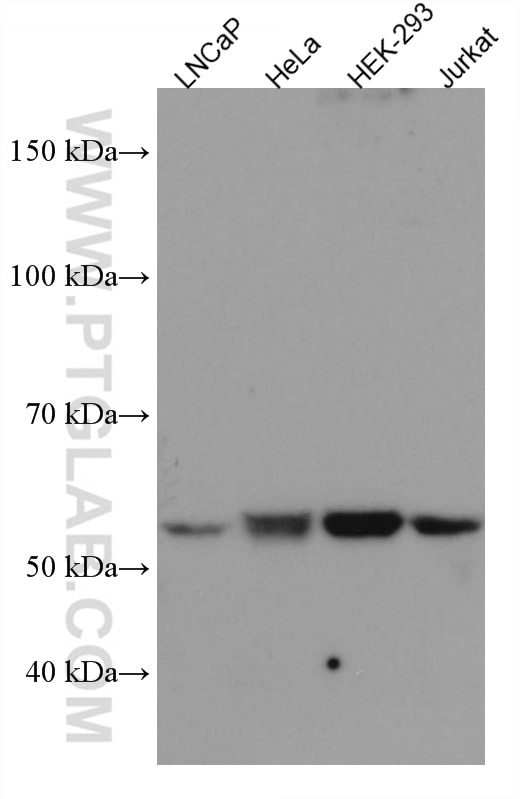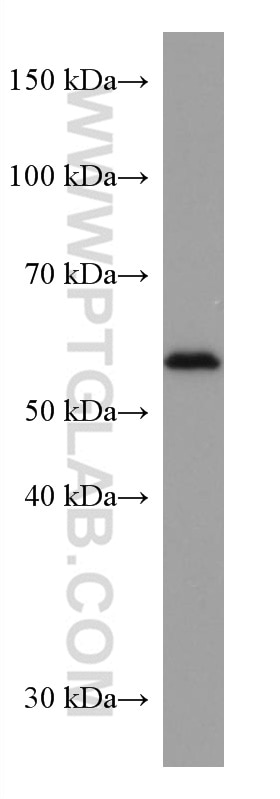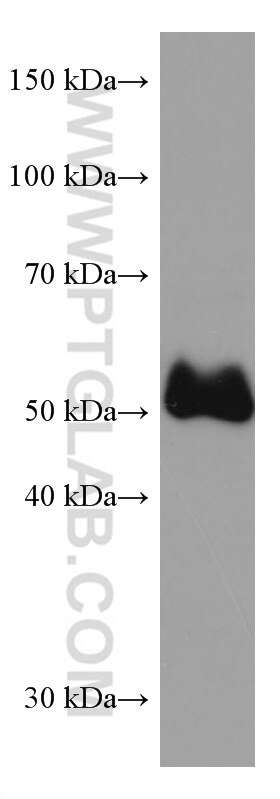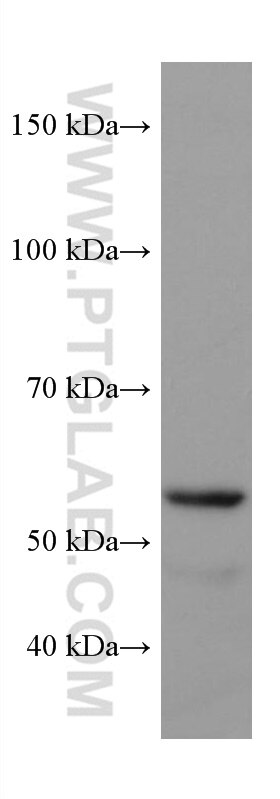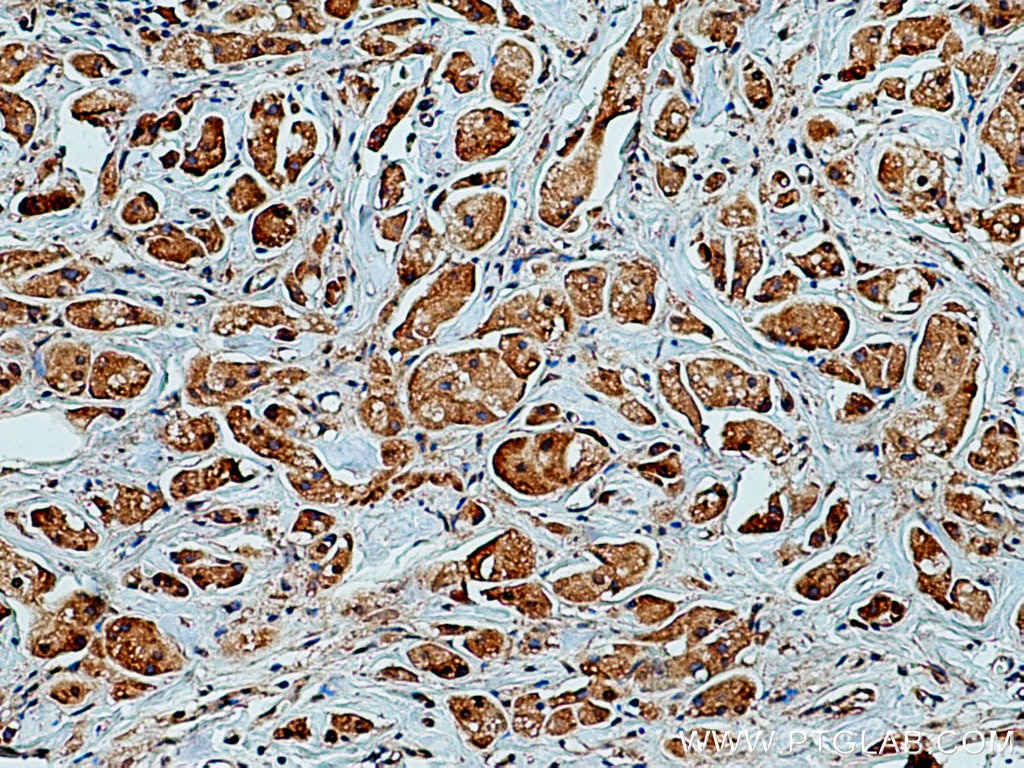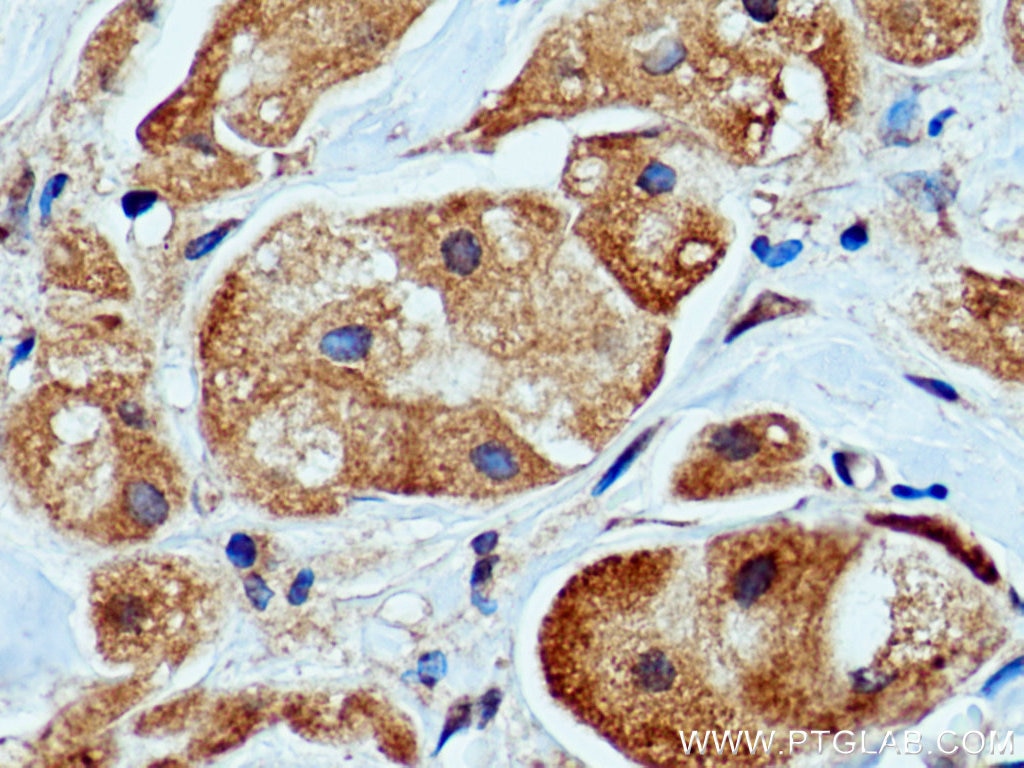Validation Data Gallery
Tested Applications
Recommended dilution
| Application | Dilution |
|---|---|
| It is recommended that this reagent should be titrated in each testing system to obtain optimal results. | |
Product Information
67202-1-PBS targets PEPD in WB, IHC, Indirect ELISA applications and shows reactivity with Human samples.
| Tested Reactivity | Human |
| Host / Isotype | Mouse / IgG1 |
| Class | Monoclonal |
| Type | Antibody |
| Immunogen | PEPD fusion protein Ag28713 相同性解析による交差性が予測される生物種 |
| Full Name | peptidase D |
| Calculated molecular weight | 493 aa, 55 kDa |
| Observed molecular weight | 55 kDa |
| GenBank accession number | BC015027 |
| Gene Symbol | PEPD |
| Gene ID (NCBI) | 5184 |
| RRID | AB_2882495 |
| Conjugate | Unconjugated |
| Form | Liquid |
| Purification Method | Protein G purification |
| UNIPROT ID | P12955 |
| Storage Buffer | PBS only , pH 7.3 |
| Storage Conditions | Store at -80°C. |
Background Information
PEPD, also named as PRD, Prolidase, X-Pro dipeptidase, Imidodipeptidase, Peptidase D and Proline dipeptidase, belongs to the peptidase M24B family and Eukaryotic-type prolidase subfamily. PEPD splits dipeptides with a prolyl or hydroxyprolyl residue in the C-terminal position. It plays an important role in collagen metabolism because the high level of iminoacids in collagen. Defects in PEPD are a cause of prolidase deficiency (PD). PEPD is considered as the most promising candidate genes for altering AAA risk, based on gene function, association evidence, gene expression, and protein expression.(PMID:21247474)
